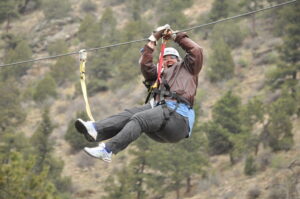
Resistance gets a bad rap. Without air resistance, we couldn’t fly. Without water resistance, our sailing days would be over. Without muscle resistance, we’d be rolling helplessly on the floor. And without emotional resistance, we’d have no boundaries. Sitting ducks for any jerk that wanted to take advantage of us. Let’s face it, in this all-too-real world. Jerks exist. We need boundaries.In my business, traditionally resistance got shamed. Clients who didn’t follow directions to the clinician’s specification were labeled resistant, or even (horrors) HIGHLY resistant, and might even face treatment termination due to their lack of pliancy. From my perspective, that only makes things worse. Childhood trauma is a result of the abuse of power by a parent or other primary caregiver. When a therapist exerts power and tells you you’re wrong to counter with your own, they retraumatize you. Resistance is a coping mechanism, and under the right circumstances, a healthy one. Shaming it only drives the mechanism underground, where it stands little to no chance of being honed as a refined skill.
Resistance is necessary
So say this out loud and with confidence: “I need resistance”. And then whisper to yourself, “as long as I choose it and can thin those boundaries when it serves me.” Anyone who watches Star Trek knows that those force fields consume energy. If you walk around all the time with thick, highly-charged boundaries, it’s going to exhaust you. So being able to thicken, thin, or in cases with safe beloveds, take those boundaries down altogether, is crucial to emotional survival.
 I’m going to show you something. I also know that once you see this, you might wonder why you ever thought I might be a good coach! And I feel my resistance now, as I know I will feel it right before I post this. It’s a picture of me, in all my overweight glory, sliding down a cable. Even that day, I got to dance with my resistance. Oh yeah, I don’t jump off a platform five stories from rocky terrain with aplomb! Each time, my gut seized. It never got easier…there were five platforms, one a quarter of a mile long (this picture was taken during that stretch). I didn’t realize that there was both a certain strength and a physical skill level involved in ziplining; each time, despite my best efforts to straighten my legs for a forward direction, I would twist 90 degrees to the right. I would brake well ahead of the platform, so that either a) I would need with my shockingly weak arms to hand-over-hand pull myself along the cable to the platform or b) have one of the lovely young men grasp my tubby body respectfully and haul me in (and if I were heterosexual, I would have been thrilled…they were darling!). When I finally landed the platform on my own steam on the final try, the 13 others broke into spontaneous applause!
I’m going to show you something. I also know that once you see this, you might wonder why you ever thought I might be a good coach! And I feel my resistance now, as I know I will feel it right before I post this. It’s a picture of me, in all my overweight glory, sliding down a cable. Even that day, I got to dance with my resistance. Oh yeah, I don’t jump off a platform five stories from rocky terrain with aplomb! Each time, my gut seized. It never got easier…there were five platforms, one a quarter of a mile long (this picture was taken during that stretch). I didn’t realize that there was both a certain strength and a physical skill level involved in ziplining; each time, despite my best efforts to straighten my legs for a forward direction, I would twist 90 degrees to the right. I would brake well ahead of the platform, so that either a) I would need with my shockingly weak arms to hand-over-hand pull myself along the cable to the platform or b) have one of the lovely young men grasp my tubby body respectfully and haul me in (and if I were heterosexual, I would have been thrilled…they were darling!). When I finally landed the platform on my own steam on the final try, the 13 others broke into spontaneous applause!
How I Work with Resistance
When a client balks at a question I ask, argues against an exercise, or doesn’t do their homework, I feel them. I really do. Going into tough emotional terrain is HARD! It’s scary stuff. Trusting someone is HARD, even with muffin-y me. Doing what somebody else tells, suggests, or encourages you to do might just bring out your inner rebel, a part I would only encourage becoming stronger. In fact, resistance tells me that we’re on to something here. That here is where the work is, needs to be, even.
So befriend your resistance. Next time you “just don’t want to do something”or find yourself arguing against a suggestion or a belief, notice what’s going on in your body. Feeling a little sleepy? Holding your breath? Tightening your gut? Get curious. And if you can, take a few moments to notice how your body is beefing up the resistance, and hang with it a bit.
In short, talk to the hand. You might just notice that, if you continue to bring mindful attention to the inner “no,” that that part of you will reveal much information: perhaps fear, perhaps anger, perhaps confusion. You might even get a more specific hit: an image of an experience you had, or a particular age that seems to resonate with this activation. Don’t shame it, or try to undo or otherwise get rid of it. Sometimes, just listening is enough, and you might find the resistance softening. But if you don’t, if you find it overwhelming or disabling, maybe we need to talk.